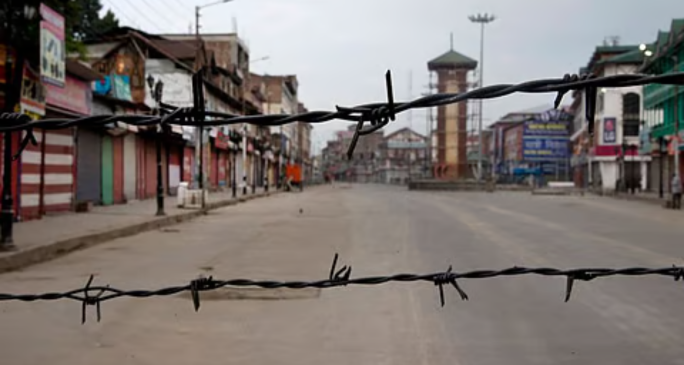By Farman Aydin
In the annals of post-colonial statecraft, few moves have been as brazen, disruptive, and analytically revealing as India’s unilateral revocation of Article 370 on 5 August 2019. It was not merely a constitutional sleight of hand or a domestic policy decision, but it was a seismic shift in the regional power matrix, a strategic manoeuvre cloaked in nationalist populism, and a case study in how democracies can deploy legal instruments to enforce authoritarian aims. Five years on, the dust has not settled. On the contrary, the revocation continues to reshape the social fabric, political landscape, and economic viability of Indian Illegally Occupied Jammu and Kashmir (IIOJK), while casting a long shadow over South Asia’s already fragile peace.
What the Modi government framed as an act of national integration was in reality an effort to dismantle Kashmir’s distinct identity, subvert its autonomy, and accelerate the demographic engineering of the region. The abrogation has deepened alienation, legitimised occupation, and underscored a wider ideological project—one that prioritises majoritarian control over pluralistic coexistence.
Originally introduced in 1949, Article 370 granted Jammu and Kashmir special status within the Indian Union. It allowed the region to legislate independently on all matters except defence, foreign affairs, and communications. Article 35A supplemented this autonomy by preventing outsiders from acquiring land or government jobs, thereby safeguarding the demographic and cultural integrity of the region. Both articles, though symbolic of a contested compromise, were instrumental in maintaining a veneer of federal respect.
Revoking them without consultation or consent was not only unconstitutional in spirit but politically incendiary in effect. It marked the transformation of India’s “problem state” into a laboratory of authoritarian control, all in the service of the BJP’s Hindutva ideology and electoral calculus.
The economic argument that accompanied the abrogation—that Kashmir would finally prosper free from the shackles of special status—has been exposed as hollow propaganda. The Kashmir Chamber of Commerce and Industry estimates over ₹15,000 crore in commercial losses since August 2019 and nearly half a million job cuts. Tourism, once the region’s economic heartbeat, has collapsed, with only 84,000 tourists visiting in the year following the revocation, down from over a million in previous years. According to independent analyses, average monthly incomes have nosedived from ₹22,000 to ₹6,000.
Rather than open doors to investment and opportunity, the move has intensified economic strangulation. Internet shutdowns, transport disruptions, and curfews have crippled trade and paralysed the information technology and handicrafts sectors. The introduction of new taxes on property and attempts to lease land to non-Kashmiris have only deepened fears of displacement and dispossession among the local population.
But the economic impact is only one part of the tragedy. At its core, the abrogation of Article 370 is a political and psychological blow to Kashmiri identity. The issuance of domicile certificates to millions of non-locals, the redrawing of electoral constituencies to favour Hindu populations, and the granting of voting rights to outsiders are all components of a demographic offensive aimed at reshaping the Muslim-majority region into a controlled colony.
This is not integration—it is assimilation by force.
On the ground, security measures have been brutal. Human rights organisations have reported widespread abuses, including arbitrary detention, torture, extrajudicial killings, and enforced disappearances. The region now hosts one of the most heavily militarised civilian populations in the world. In May 2022, India approved the expansion of temporary camps for paramilitary forces, further entrenching the military occupation.
Religiously significant sites have not been spared either. The BJP has moved to co-opt or neutralise Muslim institutions, with religious leaders surveilled and Islamic seminaries threatened with closure. The ideological motive is unmistakable: to dilute the region’s Islamic heritage and insert Hindutva narratives in its place.
Pakistan, long an advocate for the rights of Kashmiris, has vocally opposed the move, raising it at the United Nations and the Organisation of Islamic Cooperation. Islamabad’s stance is rooted not only in historical responsibility but in international law. UN Security Council resolutions continue to regard Jammu and Kashmir as a disputed territory, and the people’s right to self-determination remains unfulfilled.
India’s repeated reference to Kashmir as an “internal matter” is both inaccurate and deceptive. The international community, though hesitant to act, must recognise that this is not a sovereign affair—it is a crisis of human rights, legality, and regional stability. Silence from global powers only emboldens authoritarianism and weakens the rule-based international order.
The most alarming development is perhaps the creeping normalisation of this new reality. While the world’s attention has turned to other crises, India continues to press forward with its demographic transformation. The so-called “anti-encroachment drives” and amendments to land laws are nothing more than veiled attempts at dispossession, reminiscent of colonial land seizures and Israeli-style settlement policies.
Five years after the abrogation, the people of IIOJK have neither forgotten nor forgiven. Their demand is clear and unwavering: the restoration of their autonomy, the recognition of their identity, and the realisation of their inalienable right to self-determination. No amount of coercion or propaganda can extinguish the legitimate aspirations of a people who have faced decades of occupation with resilience and dignity.
The world must not avert its gaze. The time has come to hold India accountable—not merely for breaking its constitutional promises but for violating international law, undermining peace, and perpetrating systemic injustice. The future of Kashmir cannot be dictated from Delhi; it must be determined by its people.
Until then, the story of Article 370’s revocation remains not one of unity, but of unilateralism—an act of political hubris masquerading as national interest, and a dark stain on the conscience of the world’s largest democracy.
------
"This article reflects the author’s own views. The editorial board is not responsible for the content or opinions expressed herein."

